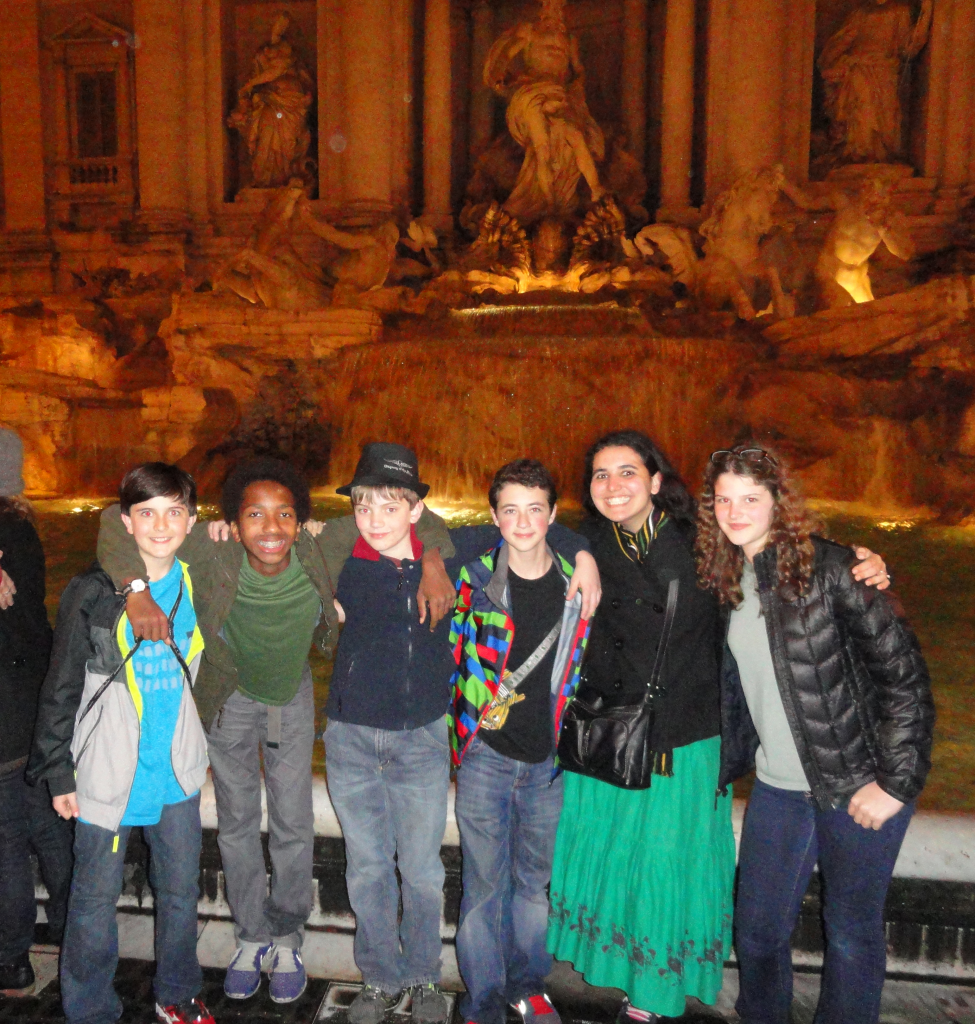UNC alumna brings joy of Latin to area middle schoolers
Before graduating with her BA in Latin and Italian and a minor in Classical Humanities, Susan Meyer, ’09, knew that she wanted to make a career out of Classics but wasn’t certain what she would do. She soon decided to follow up her undergraduate studies with UNC’s MAT program, graduating with a master’s degree in education with a Latin emphasis. Now, as the Latin teacher at Culbreth Middle School, she shares her experiences on the job and why studying Latin is a worthy life-long pursuit.
Q: What originally drew you to study Classics and Latin?

Susan Meyer: As strange (and potentially embarrassing) as it may seem, I started studying Latin in high school because I was obsessed with J.K. Rowling’s Harry Potter series. I knew that Rowling was a Classicist and that her books were heavily influenced by ancient Greece and Rome. I had been reading Greek mythology since I was a small child, so I already recognized Rowling’s mythological influences; I wanted to complete my comprehension of the series by learning the Latin roots of the spells and story. In 9th grade, I actually signed up for Latin, but found that the course was cancelled before I had a chance to enroll. Once my school began to offer Latin again in my senior year, I jumped at the chance to learn the language of the Harry Potter series! I ended up falling in love with the Romans — every aspect of their language, culture, and (most of all) history!
Q: How or why did you choose to enter the field of teaching?
SM: From the outset of college, I knew that I wanted to do something with the Classics for the rest of my life; I had no idea it would be teaching! Until my junior year, I had wanted to become an archaeologist. I decided to enter into teaching because I loved the idea of preserving the legacy of the Romans in more than just tangible artifacts. I wanted to keep the thoughts and words of the Romans alive. In teaching, I would get a chance to share my passion for Rome with others. It wasn’t until I did my student teaching in graduate school that I realized the best reason for teaching is actually getting to explore Rome with the students; the kids make teaching worthwhile more than anything else.
Q: Why do you believe teaching and learning the Classics is so important for young students?
SM: In learning about the Classics, students have a unique chance to trace the roots of our civilization. The study of the Classics is utterly relevant and important for young students because it helps them understand more about our society. My students come up to me on a daily basis with connections that they have made between the Romans and themselves. My middle-schoolers are constantly astonished at the distinct parallels that they discover between Romans and Americans. Beyond just helping young students excel in other academic subjects and standardized tests, a study of the Classics produces students who think critically about the modern world.
Q: How do you approach teaching the Classics and Latin to draw students’ interests?
SM: With a topic like ancient Rome, it’s not hard to draw students’ interests; we have gladiators, mythology, and political intrigue! It’s like the best television show ever created, but real. In order to make the subject come to life, I recently took a group of Latin students from across the district (7th-12th graders) to Italy on an educational tour (pictured above). It was one of the most exciting experiences of my life. I can’t remember how many times I heard students exclaim: “That’s in our textbook!”. I’m going to continue offering these trips abroad in the years to come. In fact, I’m already planning one for next year!
Q: What has been your greatest triumph or best memory of teaching?
SM: Although it’s hard to narrow it down to just one, my favorite memory as a teacher is from the last day of my first year teaching middle school. My eighth-graders were graduating and it was our last period as a class together. They all came in for a giant group hug. In the hug, one student shouted out (shockingly devoid of sarcasm) “We’re not a class, we’re a family!”. The other students agreed emphatically. It meant so much to me that, through our studies, the class had become a close-knit community.